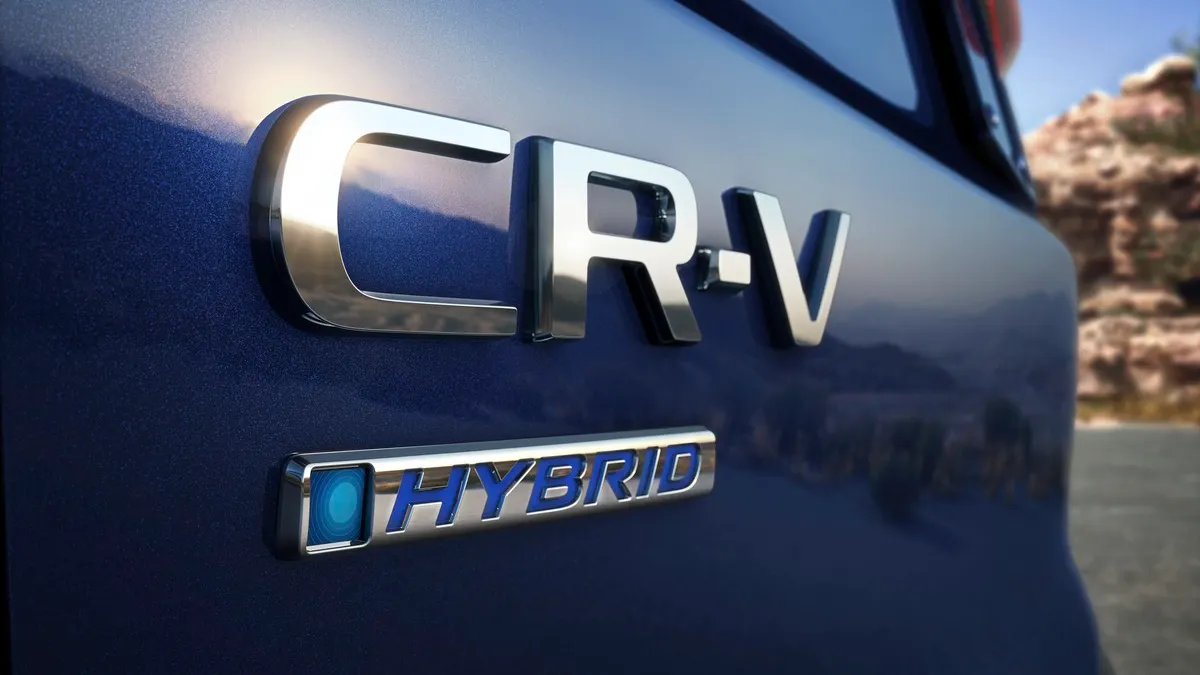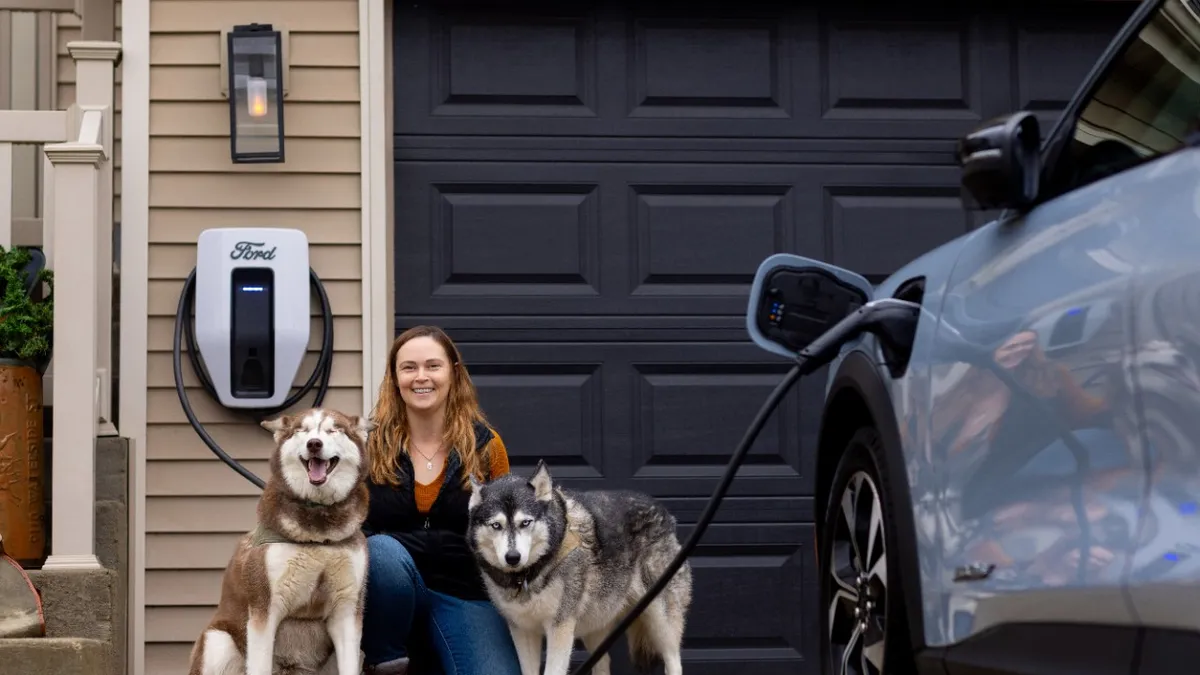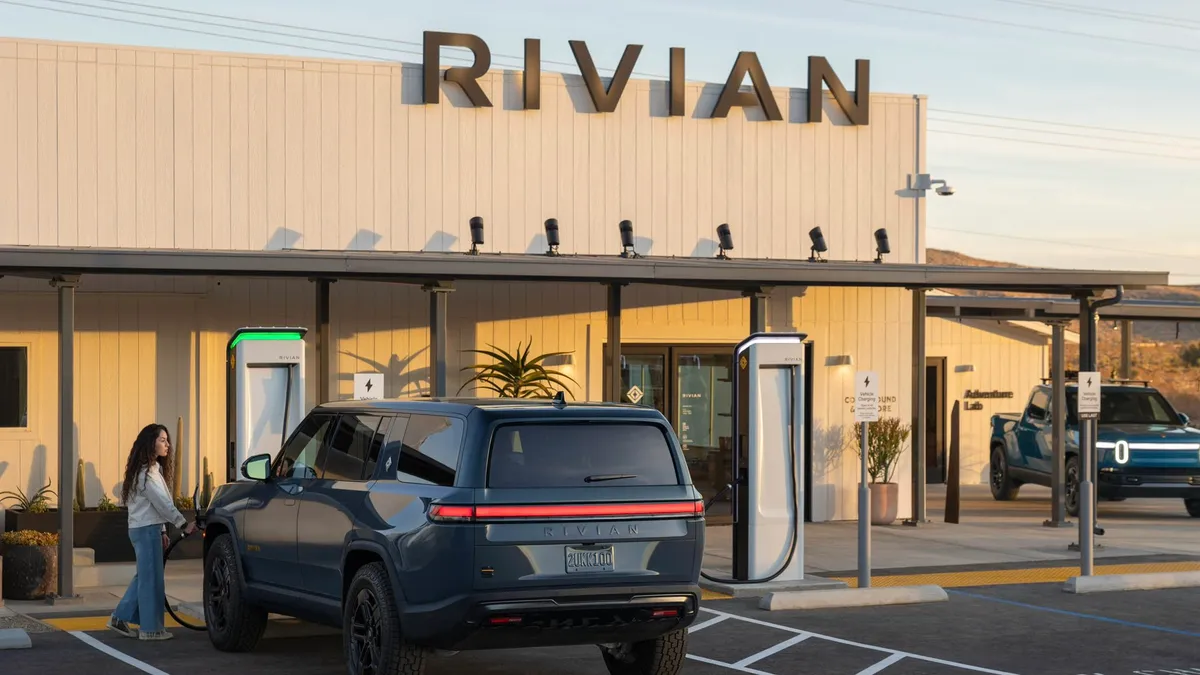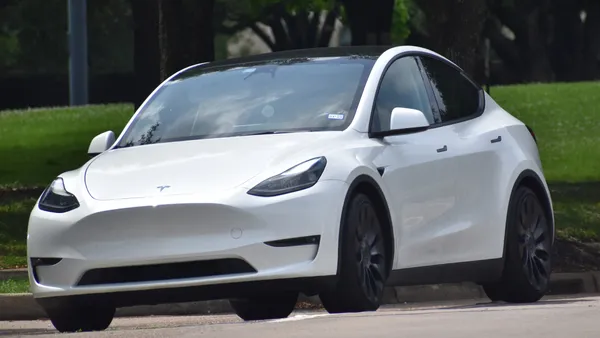Dive Brief:
- Honda Motor Co. is reducing its investments in electric vehicles through 2030 by 3 trillion yen ($20.7 billion) to focus more on launching new hybrid models, Global CEO Toshihiro Mibe announced in a press briefing Tuesday.
- The announcement comes after the automaker this month postponed its planned $11 billion investment to build EVs in Canada. Honda cited a market slowdown and changes in environmental regulations, which were a main driver of EV sales, as well as trade policies of various countries, including the U.S. and Europe, for its decision to focus more on hybrids.
- To support the plans, Honda aims to develop new hybrid powertrain technology and advanced driver assist systems and other intelligent technologies for the new vehicles it plans to launch from 2027 onwards. The company views hybrid models as crucial while the auto industry continues its transition to more widespread EV adoption over the long-term.
Dive Insight:
Honda originally planned for EVs and fuel cell vehicles to account for 100% of its sales by 2040, but reevaluated its projections based on current market conditions. The automaker now forecasts that its global EV sales mix will fall below its previous target of 30% by 2030.
However, the company says that market demand for hybrid vehicles will remain high and its next-generation hybrid models launching from 2027 will be integral for the long-term transition to EVs, which the automaker plans to reassess in 2030.
“In light of the current situation, where the automobile environment is changing significantly, we have reevaluated the future direction of our automobile business,” Mibe said in a media briefing.
In the interim, Honda plans to introduce three new hybrid powertrains by 2027 for small, mid-size and full-size vehicles that offer a 10% improvement in fuel economy.
Mibe said in the briefing that the North America market is the “main battleground for its HEV models” and there continues to be a “solid demand for large-size vehicles with spacious interiors and high cargo capacity.”
From 2027, Honda plans to launch 13 new models globally equipped with its next-generation hybrid system. Honda is targeting global sales of over 3.6 million vehicles by 2030, 2.2 million of which are expected to be hybrid models.
In February, the automaker announced plans to produce a mix of ICE, hybrid and fully electric models on the same production lines in Ohio, allowing for enough flexibility to adapt to any changes in market demand in North America.
Honda also aims to improve competitiveness and is working to reduce the cost of its next-generation hybrid systems by more than 50% compared to 2018 models and over 30% compared to its current hybrid offerings. The company aims to achieve this reduction through collaboration with suppliers, production efficiency improvements and the sharing core components across platforms.
In addition to building more advanced hybrid vehicles, Honda plans to offer its next-generation ADAS with a high level of autonomous driving capabilities in new EV and HEV models launching in North America and Japan around 2027.
The automakers say that ADAS systems in development today are being adopted for high-end EV and plug-in hybrid models due to technical challenges such as power supply constraints and the need for enhanced cooling requirements. But hybrid models have technological advantages for overcoming these challenges, according to Honda, therefore it can introduce these new ADAS features across more hybrid models.
Despite a renewed focus on hybrids, Honda still believes that EVs are the optimal solution for achieving carbon neutrality and the company will continue to prepare for more widespread adoption of battery-powered models in the future.
“There is no change in our view that EVs are the optimal solution to achieving carbon neutrality of passenger vehicles, said Mibe. “Therefore we will steadily carry out what we have done so fast to prepare for the future EV shift.”
The first-generation Honda 0 Series will remain a main pillar of the automaker’s future EV business, according to the release. The first 0 Series models are still slated to launch next year as planned.














